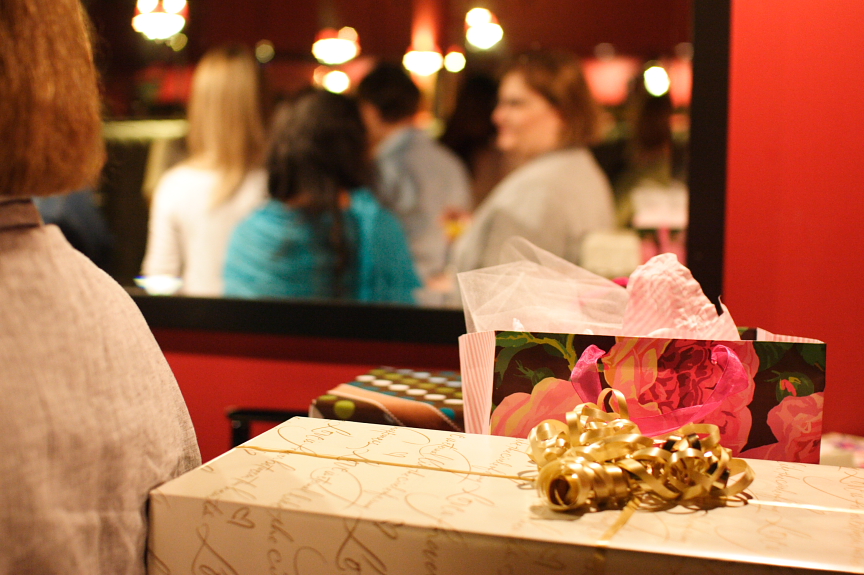NOTE: Just want to let you guise know there won't be a fixing the first page critique this month—but it'll start up again in January, don't worry. :)
So way
back in 2014 I began this tradition of writing a year in review post.
2015's is here, and you can check out
2016's as well, if you so desire, but now, of course, is time to wrap up 2017.
And what a year it's been.
January was very much a waiting period for me, but it was also the month I began a new treatment regimen for my chronic illness, which was necessary because I was not doing great, chronic-illness-wise. It was a huge step though, and I was terrified, but I did it anyway (which is kind of a theme for 2017).
February was my birthday, and the universe dropped an awesome birthday present in my lap: I was accepted into the grad school program of my dreams with a great scholarship to boot. I was beyond excited—but also terrified because it required moving 600+ miles on my own. And while emotionally I was very ready to spread my wings and move out, committing was still really scary.
At the end of the month, I also got into my first-ever car accident. I was T-boned at a four-way stop, and consider myself very lucky because while my SUV's driver's side door was trashed, the car that hit me was mercifully a sedan and I was completely unharmed. The accident was also deemed the other guy's fault so while it still ended up being an expensive experience, it wasn't as bad as it could have been.
March was a quiet month. I basically spent it debating whether or not I was going to do the grad school/moving out thing. I also wrote up a proposal for a writer-in-residence application in my potentially-new-city and immediately fell in love with the project.
April I got my part-time job back with a promotion. April was also the month I finally committed to grad school, and also booked my flight to visit my new city the next month and, uh, find a place to live. And by April I was starting to finally feel the effects of my new treatment, and much to my relief, it was helping pretty significantly.
May I began plotting
The Rising Gold, the last book of my trilogy (!!!). I also flew out to my new city, found a place to live, visited my new school, and did all sorts of tourist-y things as I tried to imagine myself living there. To my relief and delight I really enjoyed my visit, and I left pretty confident I was going to enjoy my new home.
In June I began
The Rising Gold's first draft—a draft that kicked my butt in a lot of ways and took way longer than I expected to complete (this too, seems to be a 2017 theme in my writing, at least). I believe June was also the month I booked my one-way ticket to my new city, which was a scary—but exciting—final step.
July I kept working on
The Rising Gold while also starting to really prepare for my impending move. It was a bit of an odd summer, because I was stuck in a holding pattern before my life changed drastically.
August was a huge month. I finally finished first drafting
The Rising Gold, got my
Into the Black ARCs, packed all my things, donated a ton of books, mailed all my things to my new place, and then on the last day of the month, said a (very) tearful goodbye to my dog and my family, got on a plane and flew to my new city.
September was my first month on my own. I successfully had my part-time job transferred (which also equalled a much-needed pay raise because minimum wage laws in my new state are wayyyy better than my old state), got a new rheumatologist, got myself a therapist, began ordering furniture for my new bedroom, and, you know, started grad school—where I began using my pronouns for the first time. I also got to meet a bunch of author friends I'd known on Twitter for
years in person for the first time, which was beyond wonderful. It was a month with a lot of changes and meeting new people but overall, I was feeling good.
October was overwhelm month when I realized working a 30-hr part-time job and grad school and freelancing and being an author didn't mix well (surprise!). I was falling behind on writing work and school work, so I put in a request to change my hours at my part-time job, which eventually got approved, but didn't come into effect until mid-November. On the upside,
Beyond the Red paperbacks were released
and I got my
Into the Black author copies. I also finally came out as trans masculine nonbinary and began using my pronouns more widely. Hooray!
November was a huge month.
Into the Black hit the shelves and I had my very first launch party (which was awesome!). November was also unfortunately the month I had a rather traumatic experience at work that involved an irate customer screaming homophobic slurs at me at the top of his lungs. That part was terrible, but so many good things happened too: I had my first Thanksgiving with family near my new home, I bought myself some guy clothes that both fit me in style and physically fit me (which feels amazing!), I realized I'd already made some really great new friends, and my first semester at grad school started wrapping up.
Then December! December has been great so far. I finished up my first semester of grad school earlier this week, got myself
more guy clothes, saw a psychiatrist for the first time (which went well!) and got my vacation days approved so I can spend my Christmas with family I haven't seen in years, so that'll be really nice. Now I'm desperately trying to catch up on all the things I fell behind on, and am aiming to try to finish
The Rising Gold revisions before the year is out, and also read a ton, and also give myself time to breathe and r e l a x because boy do I need it.
But overall? I really, really am happy. This huge life change, though absolutely terrifying, has been everything I was hoping for and more. I'm more confident and overall the happiest I've ever been. And that's beyond worth every stumble and scary step along the way.
How was your 2017?
Twitter-sized bite:
Author @Ava_Jae shares their 2017 year in review. Did you have any big moments this year? (Click to tweet)










